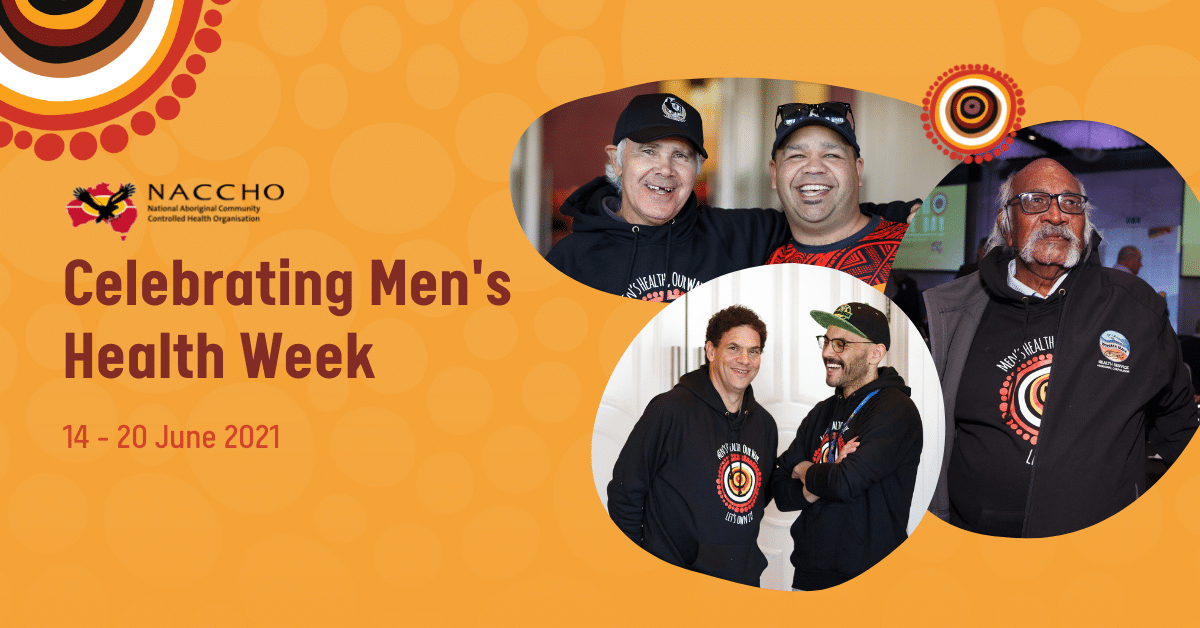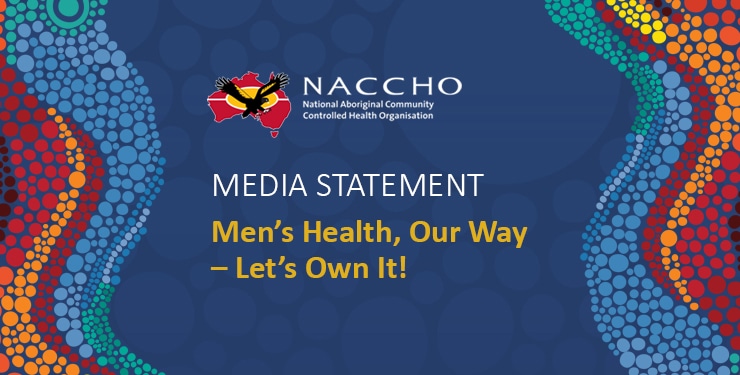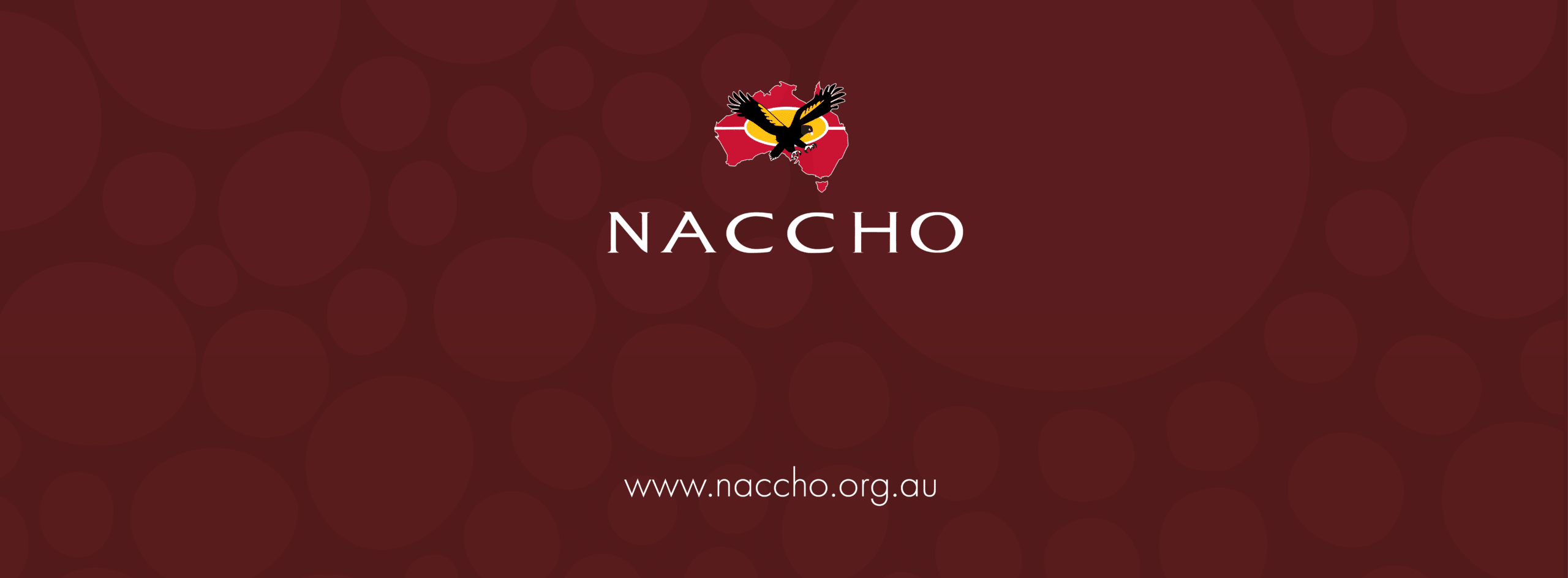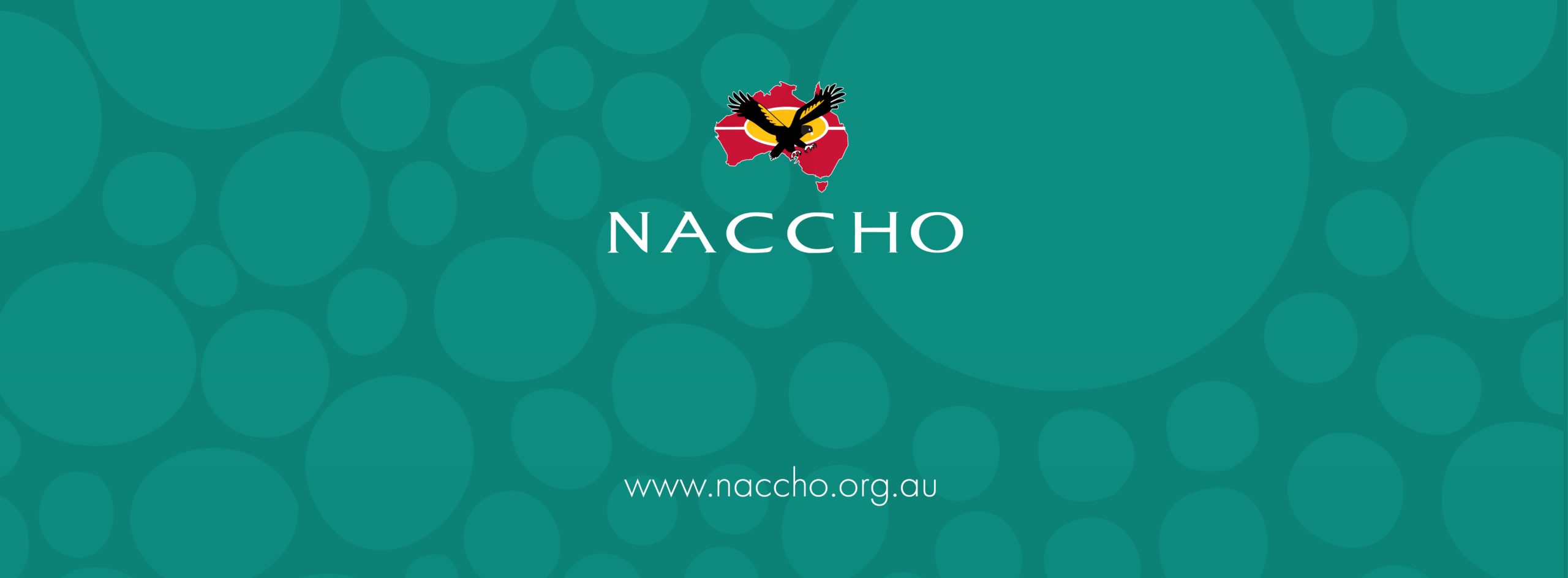

Men’s Health, Our Way – Let’s Own It!
Men’s Health Week 2022: Building Healthy Environments for Men and Boys
In the 2022 Men’s Health Week, the National Aboriginal Community Controlled Health Organisation (NACCHO), draws attention to the importance of improving health outcomes for Aboriginal and Torres Strait Islander men, across Australia.
The Aboriginal community-controlled health sector has made vast changes to outreach, education, and engagement with men, providing a wide range of preventative and early intervention, and culturally sound men’s programs that address critical social and emotional issues that some men face.
Donnella Mills, NACCHO Chair, states, ‘Our goal is for Aboriginal and Torres Strait Islander males to live longer, healthier lives and we urge them to visit their local Aboriginal Community Controlled Health Services more often to discuss their health.’
Aboriginal and Torres Strait Islander men access primary health care services at the lowest rate, compared to other Australians, and health statistics indicate they have the poorest health outcomes in Australia.[1] Research shows there are various barriers for Aboriginal men accessing health services including, societal related issues such as, stigma and gender differences; cultural differences, including language, beliefs, and law; logistical challenges, such as distance and transportation; trust in health services, financial challenges, and individual reasons including, health understanding, previous experiences and illnesses, self-esteem, and confidence, etc. [2]
Ms Mills said, ‘The theme of this year’s National Men’s Health Week, Building Healthy Environments for Men and Boys is about the importance of Aboriginal Community Controlled Health Services creating a holistic, culturally safe and engaged space for men to discuss and treat their health issues.
‘NACCHO are committed to reducing the rate of hospitalisations, which is almost three times higher than for other Australian men; and reducing suicide rates, which is one of the highest leading causes of death for Aboriginal males in this country.’
Chris Bin Kali, NACCHO Deputy Chair, said, ‘NACCHO works alongside the Aboriginal Community Controlled Health sector to ensure quality health services reach all Aboriginal and Torres Strait Islander people, in a culturally appropriate and safe environment. Ongoing support from governments to ensure these services continue, are essential.
‘A great way to check on your overall health is with a 715 Health Check that our health services offer, and I would stress the importance to get them done regularly for our men! The 715 Health Check assesses your overall health with the aim to provide health care matched to your specific needs via early detection, diagnosis, and intervention for common, treatable conditions. It is designed to support the physical, social, and emotional wellbeing of Aboriginal and Torres Strait Islander patients of all ages.’
[1] Canuto K., Wittert, G., Harfield, S., & Brown, A. 2018
[2] Smith, J. A., Merlino, A., Christie, B., Adams, M., Bonson, J., Osborne, R., Judd, B., Drummond, M., Aanundsen, D., & Fleay, J. 2020
Case study Yerin Eleanor Duncan Aboriginal Health Services, NSW:
The Yerin Men’s Group sessions are a local group that partner with other Aboriginal health organisations and host a session every month touching upon various issues that support men’s business, sharing knowledge, assistance and guidance amongst each other.
The Glen Drug and Alcohol Rehabilitation centre recently joined the Men’s Group session to share their personal stories and assist with information. In March, they invited Yadhaba Aboriginal Health Workers and community Elders to host a day of yarning about mental health and well-being and fishing on Country.

